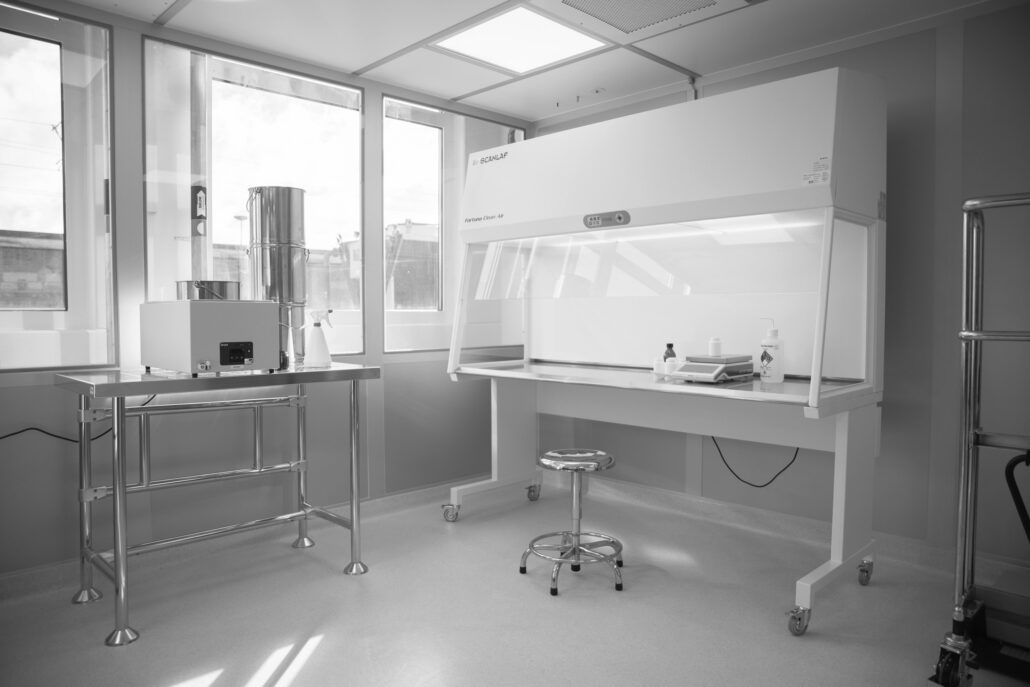
Risk management
The Magle Group operates an active and on-going enterprise risk that regulary monitors operations and profits which are susceptible to risk. Risks are routinely identified and assessed for likelihood of occurrence and severity of damage and mitigation steps are documented and put into place to reduce as far as possible the likelihood of damage. The following main risks areas are related to the operations:
Laboratory operations
The business area of chemistry development and the supply of laboratory services is dependent on operational laboratories for technology development and service revenues. By having a program of self-inspection and preventative and reactive maintenance programs, the Group is less exposed to the risk of losses.
Manufacturing operations
The business area of manufacturing operations is dependent on manufacturing facilities and equipment for continuity of supply and sale of goods. The risk of manufacturing operations failing due to a disaster or critical failings is likely to cause a revenue disruption. Inventory and stock management is used to help mitigate this so supply can continue during such an event, likewise a program of self-inspection and preventative and reactive maintenance programs is in place to limit likelihood of failure.
Liquidity risk
Liquidity risk is defined as the risk of not having access to cash assets or credit available to cover payment commitments, including interest payments and amortisation. In 2021 there was a weakening of the cash flow caused by a necessity to purchase in raw materials and in some cases extend payment times to customers to help cope and de-risk the long-term effects of COVID-19, which was managed by extending the bank overdraft facility. The liquidity risk is monitored monthly through rolling forecasts and the use of cash on hand, month of runway and gross and net burn rate metrics.

Regulatory risk
As a manufacturer of medical devices, active pharmaceutical substances, and drug products the Group’s operations are subject to standards set and monitored by regulatory authorities. The manufacturing operations operates under a manufacturing licence issued by the Swedish Medicines Agency and the manufacture of medical devices is conducted under the ISO13485:2016 approval by an appointed body. Loss or suspension of either or both licenses will cause the business to be unable to continue manufacturing and supplying of one or all its products. The Group operates under a strict quality system that is constantly monitored and operated on a continuous improvement evaluation to reduce the risk of non-compliance.
Registration risk
For its technology products the company has registrations in different territories that are subject to local and international laws, standards and guidelines. Non-compliance may lead to a product supply been suspended or terminated. Such an action will cause the product to be removed from the market temporarily or permanently. The Group monitors national compliance on a routine basis and evaluates new requirements and constantly evaluates the compliance with local and international requirements.
Financial risk management
Through its activities, the Group is exposed to various types of financial risk and has a comprehensive risk management programme that concentrates on minimising potential destabilising effects on financial results.
Disruptive technology risk
Disruptive technology is a risk to the Group’s technology platform, a disruptive technology introduction could lead to a change in the standard of care or treatment options in one of the Group’s therapeutic fields. Such a technology may displace a well-established product or the technology platform. The Group is active to patent the inventions and new development projects and is also active in monitoring new patents and applications from prospective disruptive technologies and assesses the potential risk such a technology poses to the Group. In the life science sector new technologies are subject to strict regulation and in most circumstances requires clinical which takes a long time and requires financial investment.

